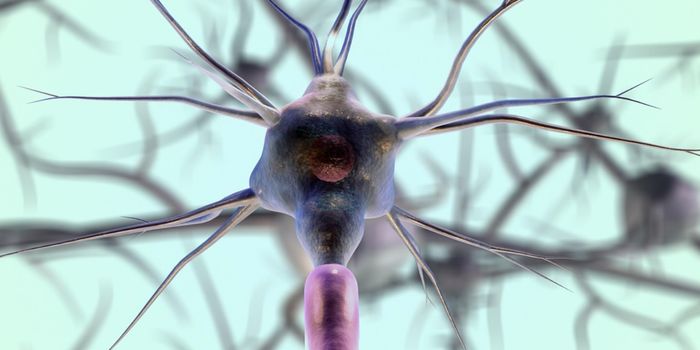Neuroscience from the 2022 Labroots Virtual Event
Last week, Labroots hosted its 10th annual virtual neuroscience conference. Held online – and available now on demand for two years – the free conference boasted 18 speakers whose work in academia and industry covers a diverse array of research interests. These interests include understanding how neurons and neuronal activity underpin behavior, how brain waves support crucial cognitive functions, the function of protein aggregates in Alzheimer’s and Parkinson’s diseases, and therapeutics that improve nervous system repair in disorders and injuries.
The conference also included a poster hall of 16 downloadable posters encapsulating research on diverse topics, including THC’s effect on the brain and correlating electroencephalogram (EEG) with emotional face processing.
Held entirely online on March 10th, 2022, the conference was divided into four tracks, 18 speakers presented work on collaborative science and cutting edge research:
-
NIH Brain Initiative: Human Neuroscience and the Cross-Cutting Impact of Scientific Collaboration
-
Neuroethics
-
Cognitive/Executive Function
-
Technologies/Approaches/BCI
-
Disease
-
-
Advancements to Combat Neurodegenerative Disease
-
Developments in Behavior and Psychiatric Disorder Research
An Interdisciplinary Collaborative Approach to Neuroethics
Whatever your research area in neuroscience – for example, diseases, cognitive function, or technologies – your work is guided by ethical standards. Indeed, any research involving human subjects depends on important ethical concepts, such as informed consent. For this reason, I focused on Dr. Ashley Feinsinger’s keynote presentation: “Getting Into the Brain: the Ethics of Invasive Human Neuroscience Research”.
Dr. Feinsinger is an adjunct faculty member in UCLA’s Department of Medicine and UCLA’s Philosophy Department. Her neuroethics lab, funded by the NIH Brain Initiative, uses an interdisciplinary collaborative approach to understanding patient-participant motivation for enrolling in invasive brain research. Members of her team include philosophers and neuroscientists.
Two Major Concepts Crucial to the Ethics of Patient-Participation in Research
Dr. Feinsinger’s talk centers on the ethics of invasive basic intracranial neuroscience research, but one need not be a neuroscientist researching intracranial technologies to find some of the basic ethical considerations relevant to their work. That’s because those basic ethical considerations are universal – they apply to the use of human subjects in any scientific research.
Dr. Feinsinger’s talk aims at two goals: 1) explaining “the fundamental ethical challenges of basic human neuroscience research with implanted devices,” and 2) evaluating “current practices against two leading ethical principles: maintaining the integrity of clinical care and ensuring voluntariness of participation.” Of particular importance in any discussion of using human subjects in research is consent. We need only think about the horrors of Nazi “experiments” on prisoners and the United States government’s baleful 40-year Tuskegee syphilis study to be reminded of the significance of what a lack of consent to participate in scientific research means.
Consent is a complex concept. For example, consent assumes autonomy, which is essentially self-legislation or the freedom to control one’s life. Ethicists ask questions about what it means to say one is free or has freely made a decision to do something. Related to autonomy is understanding. Consent requires one have a sufficient understanding of the risks and benefits involved in participating in an experiment. After all, lacking such understanding makes it difficult to see how one has freely agreed to participate.
Consent is not the only major ethical concept involved in the ethics of patient-participation in scientific research. Dr. Feinsinger and her team found that trust is a significant factor in a patient’s decision to enroll in an invasive neuroscience research program. Many patient-participants reported that they enrolled in a study because they trusted their team or surgeon responsible for their care. Consequently, Dr. Feinsinger says, “thinking about practices that really build trusting relationships” should be among the ethical considerations at every step of the research process.
Additional Noteworthy Ethical Considerations for Human Participation in Scientific Research
Of particular interest in Dr. Feinsinger’s talk are the sustained attention to ethical issues throughout the research process, the desirability for third-party ethical monitoring, and the direct input of stakeholders in the development of best practices. For example, consent is not merely a one-time agreement to participate in a research study. At significant stages of the study, the participant must be able to consent to continued participation. For example, withdrawing from participation when one is in the middle of brain surgery may be all but impossible.
Dr. Feinsinger also suggests third-party participants. These individuals are essentially objective moderators – they do not have a stake in the research as, for example, the surgeon does. In addition, because researchers have specialized knowledge that, for example, a non-expert lacks, it is important that the relevant stakeholders are members of groups that develop best practices for research – scientists are embedded into the process of developing ethical frameworks for research.
Of course, there were many more fascinating talks and posters presented at the conference. For full details, and to register for the now on-demand conference, click on the link here: Labroots Neuroscience Virtual Event 2022
Sources: United States Holocaust Memorial, Centers for Disease Control and Prevention









